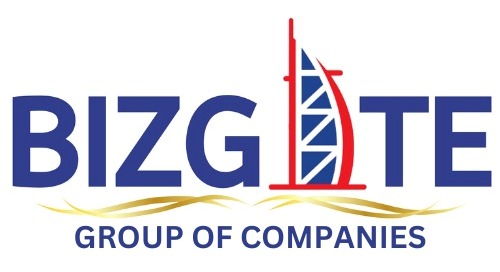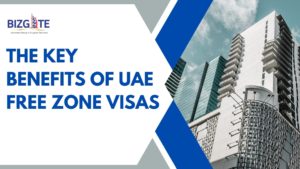How to Convert Your E-Commerce License to a Physical Shop in Dubai
The UAE’s e-commerce boom has enabled countless entrepreneurs to launch businesses with minimal overhead. But as your online brand flourishes, the desire to establish a tangible presence – a physical shop, showroom, or office – often arises. This transition, moving from an e-commerce (e-trader or similar) license to a full Commercial License with a physical establishment, is a significant growth milestone.
This guide will walk you through the essential steps, ensuring a smooth conversion based on updated regulations from Dubai Economy and Tourism (DET, formerly DED) and various Free Zones.
Understanding Your Current E-Commerce License
Before we dive into conversion, it’s crucial to understand your starting point.
- E-Trader License (Mainland): Issued by DET (formerly DED) for UAE and GCC nationals and residents living in Dubai. It allows for online selling via social media and e-commerce platforms, typically without a physical office space, strictly prohibiting the opening of a physical shop.
- Free Zone E-Commerce License: Issued by various Free Zones (e.g., DMCC, IFZA, Meydan, Dubai CommerCity) allowing online sales within and outside the UAE. While some Free Zone e-commerce licenses might permit a Flexi-desk or shared office, they generally don’t allow for a separate, dedicated retail space outside the Free Zone.
The key takeaway is this: neither an E-Trader license nor a typical Free Zone e-commerce license permits you to operate a dedicated, customer-facing physical retail shop or showroom in the UAE. To do so, you need to upgrade to a Commercial License with appropriate activity and physical premises.
Step 1: Define Your New Business Scope and Location
Your physical presence requires a more robust license with specific activities.
- Refine Your Business Activities:
- What will you be selling in your physical store?
- Will you offer new services (e.g., in-store consultations, workshops)?
- Ensure these activities are permitted under a Commercial License and align with your chosen location.
- Choose Your Location: Mainland vs. Free Zone:
- Dubai Mainland (DET): Ideal if your primary target market is local UAE customers and you want to open a shop anywhere in Dubai’s commercial areas (malls, high streets). Requires a local sponsor (for a Professional License) or 100% foreign ownership (for a Commercial License, specific activities).
- Free Zone: Suitable if your primary market remains international, or if you prefer 100% foreign ownership with simplified regulations within a specific Free Zone’s commercial area. If you want a shop outside the Free Zone, you’d still need a Mainland license.
- Dual License: Some businesses opt for a dual license – maintaining a Free Zone entity for specific activities (e.g., regional distribution) and a Mainland entity for local retail.
- Decision Point: Most businesses aiming for a public-facing physical shop in a mall or high street will need to transition to a Mainland (DET) Commercial License.
Step 2: Select Your Legal Structure and Trade Name
This step involves formalizing your new business identity.
- Legal Structure:
- Sole Proprietorship: For a single owner (often transitioning from an E-Trader).
- Limited Liability Company (LLC): The most common choice for commercial activities in Mainland Dubai, allowing up to 100% foreign ownership for many activities.
- Branch Office: If you have an existing Free Zone or foreign company, you might register a Mainland branch.
- Trade Name Approval:
- Submit your preferred trade name (usually 3 options) to DET or the relevant Free Zone authority.
- Ensure it adheres to UAE naming conventions (not offensive, no religious connotations, not already in use).
Step 3: Secure Your Physical Premises (Crucial Step!)
A physical shop necessitates a valid tenancy contract.
- Find Your Retail Space: Identify and lease a suitable shop, showroom, or office space in your chosen Mainland or Free Zone location.
- Tenancy Contract (EJARI):
- For Mainland, your tenancy contract must be registered with EJARI. This is a mandatory government registration and proof of your physical address.
- For Free Zones, the Free Zone authority will provide a lease agreement.
- The size and type of your premises must match your proposed activities and legal requirements (e.g., some activities require specific storage or display areas).
- Note: Your E-Trader or existing e-commerce license will not have an EJARI, so this is a new requirement.
Step 4: Obtain Initial Approvals and License Application
This is where the formal conversion process begins.
- Initial Approval: Apply for initial approval from DET or the relevant Free Zone. This confirms that the government has no objection to you proceeding with the setup.
- MoA/AoA Drafting: For LLCs, draft a Memorandum of Association (MoA) and Articles of Association (AoA) outlining the company’s structure, shareholders, and activities.
- Submit Documents:
- Passport copies of all shareholders and managers.
- Your existing E-commerce/E-trader license.
- Copy of your EJARI registered tenancy contract (Mainland) or Free Zone lease.
- No Objection Certificate (NOC) if you are employed elsewhere.
- Other documents as required by DET or the Free Zone.
Step 5: Finalize License Issuance and Payments
Once all documents are approved, you’re almost there!
- Pay Fees: Settle the government fees for your new Commercial License. These will be higher than your initial e-commerce license due to the physical premises and broader scope.
- License Issuance: Upon payment and final verification, DET or the Free Zone will issue your new Commercial Trade License.
- Chamber of Commerce: For Mainland companies, you will also receive a membership certificate from the Dubai Chamber of Commerce and Industry.
Step 6: Post-Licensing & Operational Steps
Your journey doesn’t end with the license.
- Corporate Bank Account: If you’re a new entity, open a corporate bank account. If upgrading an existing entity, inform your bank about your new license and physical premises.
- Visa Processing: Apply for investor visas for shareholders and employment visas for staff as needed.
- External Approvals: Depending on your business activity (e.g., food retail, health products), you may require additional external approvals from bodies like Dubai Municipality, Dubai Health Authority, or Ministry of Climate Change and Environment.
- Fit-Out & Launch: Complete the fit-out of your new shop, secure necessary permits for signage, and prepare for your grand opening!
Transitioning from an online-only model to a brick-and-mortar presence is a complex yet rewarding process. Engaging with a trusted business setup consultant like Bizgate from the outset can simplify the journey, ensuring compliance with all regulatory requirements and streamlining the approvals process. They can provide tailored advice on Mainland vs. Free Zone, activity selection, and office space options, making your move from clicks to bricks a resounding success.




